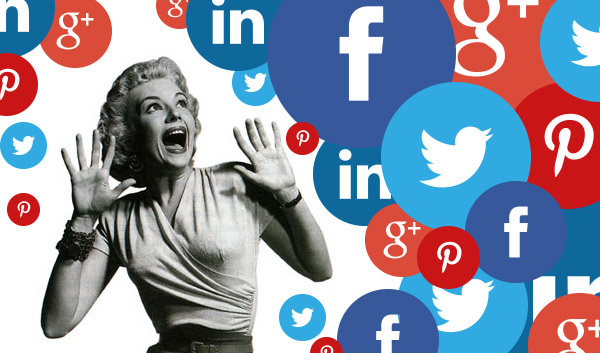|
With the New Year upon us comes time for New Years resolutions and goals to change dietary and lifestyle habits to become healthier, but there’s something you need to be aware of. For the past decade, healthy eating seems to be the biggest craze and for the first part of this boom I couldn’t be more excited as a Dietitian for a more health conscious society. Unfortunately that focus on healthy eating took a turn for the worse when more and more healthcare practitioners identified Orthorexia Nervosa, a term originally coined by Dr. Steven Bratman in 1997! Orthorexia Nervosa is a medical condition where someone has reached the point of obsession with foods that they consider to be healthy. This condition is furthered by the complete avoidance of foods that would be traditionally deemed to be unhealthy. This condition is so new that it’s not even in the DSM 5 (Diagnostic and Statistical Manual of Mental Disorders: Fifth edition), which was released in 2013! But it’s a very real condition as I have seen it many times in my own practice and personal life. Furthermore, my colleagues and I also agree that the numbers are climbing drastically, but why? There are many theories that I’ve read out there on why this is happening, most of the theories out there are just speculation (which is the same in this blog post) given how new the Orthorexia Nervosa phenomenon is. The issue is that Orthorexia Nervosa isn’t like most other eating disorders, whereas the majority of eating disorders are related to a body image issue, wanting to look a certain way or related to some aesthetic desire. Orthorexia Nervosa is the obsession with trying to be as healthy as possible. With all this being said, I thought I would offer my own thoughts as to what has contributed to this sudden rise in obsessive healthy eating. One of my first thoughts is the rise of Social Media and the same rise in popularity in the Physique competition world. Now this has been a social phenomenon that occurred and has been established for quite some time now, but I remember when Facebook was exclusive to University students only. Now everyone is on, and with the rise of other social media platforms everyone seems to be an expert at nutrition to the point where “Instagram Models,” Fitness Models and Personal Trainers are giving out nutrition tips that are wildly unfounded in research or logic. Societies have always established a poor connection with how someone’s body looks and their knowledge on nutrition. For example “Oh he must know how to eat properly because he has a six-pack abs and lots of muscles.” This is such a fallacy in logic. What this one person has done is figure out what works for him or her but that does not mean that they have the complex training to actually give advice on the topic of nutrition or health. Another thing that needs to be mentioned is the juxtaposition in the physique competitor world where healthy eating and physical activity is held in such high regard, however there is no second thought is given to the damage that the anabolic steroids and other pharmaceutical methods that are used achieve that body aesthetic. My second thought for the rise in Orthorexia Nervosa is the simultaneous rise of the fad diets and the popularity of detox cleanses. Now fad diets have existed prior to this phenomenon but ever since the rise in Social Media it’s taken on a whole new level. From Paleo to Self-Diagnosed Gluten-Free to Veganism to Juicing, these extremely strict ways of eating have created a black-and-white culture of foods and their health value. Now let’s get one thing straight, this is not an attack on these eating styles but rather I bring this up to highlight my point; restrictive eating became much more popular and accepted with these diets. It also doesn’t help that anyone that tries these diets out with some form of success immediately advertises to the world that all of their health problems have been solved to the point where the promotion of said diet becomes abusive (seriously, there are a ton of people out there that will harass others online and in real life if their food beliefs are not in line with anyone else’s). What these people don’t understand is the profoundly deep connection that people actually share with food. Food is more than just food, food is culture, religion, political, ethical and a person’s identity, harassing others to conform to your deeply personal choice to eat the way you do is an attack. Someone may have chosen a restrictive eating style for their own reasons, but don’t ever assume that other people need or want to do the same. My third and final thought is the rise of extreme body image issues that have been exacerbated by social media and highly unrealistic expectations. The world of advertisement, media, the fitness industry and social media posters have created an atmosphere an unsafe enviornment for anyone suffering from a body image issue, which are a lot! Through my discussions with colleagues and other health professionals there seems to be a general consensus that the obsession with healthy eating is used as a cover up to body image issues. One of my colleagues actually raised a very good point that for someone with a body image issue control is really important, having such an obsession with healthy eating provides some form of. This makes complete sense and it does explain why we’re seeing it in younger and younger people. For many, body image issues stem from a very young age. It can often come from peers, advertisement or their own parents. Additionally, at a younger age where there typically isn’t a lot of ability for a child to express their individuality, food choices can be used as a vehicle to express their individuality.  I’m glad there’s increased interest in healthy eating and healthy living, but not if it’s going to create it’s own set of problems. I’m glad that there are more and more people speaking out about the dangers of these obsessions. One person in particular, Jordan Younger, is telling her story about how Veganism and extreme dieting negatively impacted her life in her recently published book ‘Breaking Vegan.’ Yes, I agree that health is important, but physical health should not come at the expense of your social, mental and emotional health. True health is a balancing act. It’s being able to incorporate foods that aren’t considered healthy into a lifestyle that also looks at healthy foods and an active lifestyle. It’s the ability to engage in social events without having obsessive thoughts about if all the ingredients are locally sourced or vegan or whatever. Once this balance is disturbed then health no longer exists, because your physical health has come at the expense of another aspect of your health. So step away from social media and really start to question where your information is coming from, because health has a variety of meanings all profoundly personal. No two definitions of health are the same, some people will value one thing over another but at the end of the day we will all be happiest when we own our own definition of health. Ben Sit, RD, Sports Dietitian President of Evolved Sport and Nutrition Complete Lifestyle Management
6 Comments
17/10/2018 11:25:58 pm
Eating healthy was going to turns eating disorder this was amazing to know about this it was good details to having this. This article was for your heath that how you can make yourself healthy you can get tips and techniques from this.
Reply
31/5/2022 10:45:01 am
There were four nurses that formed the Physiotherapy Charter Society. Then New Zealand followed by organized their own organization in 1913 which was closely followed by the United states as they formed their own significant chapter in 1914.
Reply
13/7/2022 02:27:54 pm
Disability insurance may be purchased by individuals, provided by the government, or included in insurance packages provided by employers.
Reply
17/7/2022 07:06:42 pm
Any time you own a property as an investment that you do not live in and that you intend to make money renting out, this property can be viewed as a commercial property.
Reply
18/7/2022 04:56:50 pm
During the 1980s this place was known as an official red-light area till 1996 when the place was eventually evacuated. Since then Hyderabad was known as a 'dry' city where people have to choose many underground routes to satisfy their sexual cravings. This route is full of pitfalls, and often people end up losing miserably.
Reply
Leave a Reply. |
Categories
All
Archives
November 2021
|
- Home/ News
- About
- Services/ Store
- Media
-
Learning Center
- ESN Athletic and Healthy Lifestyle Learning Center >
-
Professional Learning Center
>
-
The ESN Sports Nutrition Certificate
>
- ESN Learning Center - Sports Nutrition Certificate Level 1 >
- ESN Learning Center Sports Nutrition Certificate Level 2 >
-
ESN Learning Center - Sports Nutrition Certificate Level 3
>
- Module 1 - Periodization for the Athlete
- Module 2 - Nutrition Strategies to Optimize Recovery
- Module 3 - Sports Nutrition for Children and Young Athletes
- Module 4 - Sports Nutrition for the Aging Athlete
- Module 5 - Nutritional Strategies for Injury Prevention and Concussions
- Module 6 - Nutritional Strategies for the Travelling Athlete
- Module 7 - Tournament Nutrition Strategies
-
The ESN Sports Nutrition Certificate
>
- Contact
Proudly powered by Weebly




 RSS Feed
RSS Feed